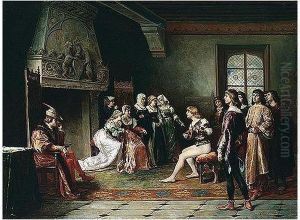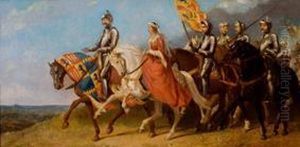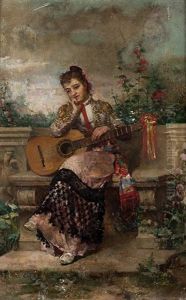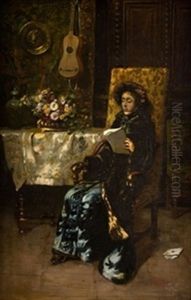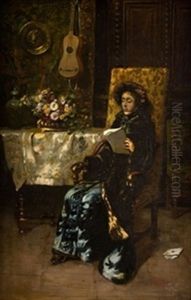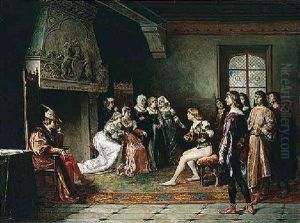Francisco Jover Casanova Paintings
Francisco Jover Casanova was a Spanish painter born on October 6, 1926, in Alicante, Spain. He was a prominent figure in the Spanish art scene, particularly known for his contributions during the mid to late 20th century. His work was influenced by a variety of styles, but he is often associated with abstract expressionism and post-impressionism.
Jover began his artistic training at the School of Fine Arts in Alicante and later moved to Madrid to continue his studies at the Royal Academy of Fine Arts of San Fernando. His early work showed a strong influence of classical art, but as his style evolved, he embraced more contemporary approaches, experimenting with form, color, and composition.
In the 1950s and 1960s, Jover's career began to flourish. He became part of the cultural renaissance in Spain during the post-war period. Alongside other artists, he contributed to the revitalization of Spanish art, which was seeking new forms of expression after the isolationist years of the Franco regime. Jover's paintings from this period are characterized by their vibrant color palette and dynamic brushwork, reflecting the optimism and energy of the era.
Throughout his career, Francisco Jover Casanova participated in numerous exhibitions both in Spain and internationally, gaining recognition for his artistic talent. He also dedicated time to teaching, sharing his knowledge and passion for art with younger generations.
Jover's later works continued to explore the boundaries of abstraction, though he never fully abandoned the figurative elements in his paintings. His mastery of light and shadow, as well as his expressive use of color, remained hallmarks of his work until his later years.
Francisco Jover Casanova passed away on January 1, 1998, leaving behind a legacy that contributed significantly to the Spanish art world. His work is still celebrated today and can be found in various public and private collections. Jover's artistic journey reflects the broader narrative of Spanish art's evolution through the turbulent 20th century, embodying the country's cultural reawakening and its artists' search for a modern identity.
